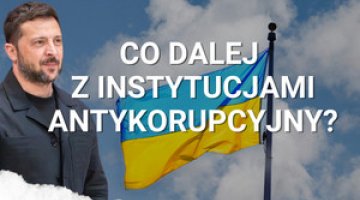Crimean Tatars seek an agreement with Moscow
On 29 March, an extraordinary session was held in Bakhchisaray of the Kurultai of the Crimean Tatar Nation, a national quasi-parliament parent to the Mejlis (the executive body). The Kurultai announced that it was taking action to proclaim a national-territorial autonomy of the Crimean Tatars in Crimea, without specifying whether it would be part of Ukraine or Russia. The possibility of holding a referendum on the issue was put forward. The Kurultai accepted a referral by representatives of the Mejlis to the current authorities of Crimea, including candidates for the position of deputy prime minister (by 1 April) and vice-president of the autonomous region’s parliament.
Commentary
- The Kurultai has stated that it will not recognise the referendum while Crimea remains a subject of the Russian Federation. However, the tone of the statement demonstrates their effective acceptance of the status quo; they will seek an agreement with the new authorities in the name of the fundamental interests of the Crimean Tatars, i.e. a guarantee of a secure life in their native country. This does not mean they have formally recognised the peninsula’s annexation.
- The Kurultai’s decision was affected, among others, by the terrible impression made by Ukraine’s surrender of Crimea without any attempts at resistance, as well as the belief that the new situation in Crimea is likely to endure. Another reason is that Moscow has suggested it is willing to consider the Kurultai and the Mejlis legitimate bodies of national government. Kyiv did nothing to regulate these bodies’ legal status for over 20 years, and the parliamentary decision to eventually do this only came after the loss of Crimea.
- Since the beginning of its efforts to annex Crimea, Moscow has tried to win at least the neutrality of the Crimean Tatars, including by distancing itself from the anti-Tatar policy of the authorities of the Autonomous Republic of Crimea, and by obtaining support for the Crimean Tatars from the government of Russian Tatarstan (whose president was present at the Kurultai). President Putin also phoned Mustafa Jemilev, the former head of the Mejlis and still the undisputed leader of the nation. Moscow has also announced a solution to the problem of their arbitrarily seized property, and after the Kurultai’s declaration, an extension was proposed in Moscow of the Russian law on the rehabilitation of repressed peoples to include the Crimean Tatars, which will be associated with financial support.
- The announcement of a referendum on autonomy, which for the time being is still vague on details, and which the Mejlis would be able to win in only a few districts of Crimea, may be understood as a suggestion to Moscow to give the Crimean Tatars the autonomy of its own initiative. Establishing such an autonomous area in part of Crimea would be easier for Russia, which contains a number of autonomous areas, than for Ukraine, which is a unitary state and is apprehensive about claims by national minorities. Moscow would also be able to use the granting of autonomy in any (hypothetical) future discussions on the future of Crimea.
- The Kurultai’s decision reduces the likelihood of some Crimean Tatar organisations launching an armed rebellion. However, if Russia does not meet the Crimean Tatars’ expectations, we should expect the authority of the existing structures of government and their leaders to fall away; this could in consequence lead to an increase in support for radical organisations and movements, including those supporting terrorism.





